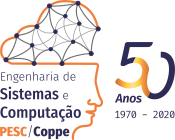Calendário de Eventos
|
26th International Symposium on Logic-Based Program Synthesis and Transformation
LOPSTR 2016
http://cliplab.org/Conferences/LOPSTR16/
Edinburgh, UK, September 6-8, 2016
(co-located with PPDP 2016 and SAS 2016)
======================================================================
DEADLINES:
Abstract submission: June 7, 2016
Paper/Extended abstract submission: June 14, 2016
======================================================================
The aim of the LOPSTR series is to stimulate and promote international research and collaboration on logic-based program development. LOPSTR is open to contributions in logic-based program development in any language paradigm. LOPSTR has a reputation for being a lively, friendly forum for presenting and discussing work in progress. Formal proceedings are produced only after the symposium so that authors can incorporate this feedback in the published papers.
The 26th International Symposium on Logic-based Program Synthesis and Transformation (LOPSTR 2016) will be held at the University of Edinburgh, Edinburgh, UK; previous symposia were held in Siena, Canterbury, Madrid, Leuven, Odense, Hagenberg, Coimbra, Valencia, Lyngby, Venice, London, Verona, Uppsala, Madrid, Paphos, London, Venice, Manchester, Leuven, Stockholm, Arnhem, Pisa, Louvain-la-Neuve, and Manchester. LOPSTR 2016 will be co-located with PPDP 2016 (International Symposium on Principles and Practice of Declarative Programming) and SAS 2016 (Static Analysis Symposium).
Topics of interest cover all aspects of logic-based program development, all stages of the software life cycle, and issues of both programming-in-the-small and programming-in-the-large. Both full papers and extended abstracts describing applications in these areas are especially welcome. Contributions are welcome on all aspects of logic-based program development, including, but not limited to:
* synthesis
* transformation
* specialization
* composition
* optimization
* inversion
* specification
* analysis and verification
* testing and certification
* program and model manipulation
* transformational techniques in SE
* applications and tools
Survey papers that present some aspects of the above topics from a new perspective, and application papers that describe experience with industrial applications are also welcome.
Papers must describe original work, be written and presented in English, and must not substantially overlap with papers that have been published or that are simultaneously submitted to a journal, conference, or workshop with refereed proceedings. Work that already appeared in unpublished or informally published workshop proceedings may be submitted (please contact the PC chair in case of questions).
Important Dates
Abstract submission: June 7, 2016
Paper/Extended abstract submission: June 14, 2016
Notification: August 3, 2016
Camera-ready (for electronic pre-proceedings): August 19, 2016
Symposium: September 6-8, 2016
Submission Guidelines
Authors should submit an electronic copy of the paper (written in English) in PDF, formatted in the Lecture Notes in Computer Science style. Each submission must include on its first page the paper title; authors and their affiliations; contact author's email; abstract; and three to four keywords which will be used to assist the PC in selecting appropriate reviewers for the paper. Page numbers (and, if possible, line numbers) should appear on the manuscript to help the reviewers in writing their report. Submissions cannot exceed 15 pages including references but excluding well-marked appendices not intended for publication. Reviewers are not required to read the appendices, and thus papers should be intelligible without them. Papers should be submitted via the Easychair submission website for LOPSTR 2016: http://www.easychair.org/conferences/?conf=lopstr2016 (can be accessed also through the LOPSTR 2016 web site).
Proceedings
The formal post-conference proceedings will be published by Springer in the Lecture Notes in Computer Science series. Full papers can be directly accepted for publication in the formal proceedings, or accepted only for presentation at the symposium and inclusion in informal proceedings. After the symposium, all authors of extended abstracts and full papers accepted only for presentation will be invited to revise and/or extend their submissions in the light of the feedback solicited at the symposium. Then, after another round of reviewing, these revised papers may also be published in the formal proceedings.
Program Committee
Slim Abdennadher, German University of Cairo, Egypt
Maria Alpuente, Universitat Politecnica de Valencia, Spain
Sergio Antoy, Portland State University, USA
Michael Codish, Ben-Gurion University of the Negev, Israel
Jerome Feret, CNRS/ENS/INRIA Paris, France.
Fabio Fioravanti, University of Chieti - Pescara, Italy.
Maurizio Gabbrielli, University of Bologna, Italy
Maria Garcia de la Banda, Monash University, Australia
Robert Glueck, University of Copenhagen, Denmark.
Miguel Gomez-Zamalloa, Complutense University of Madrid, Spain
Gopal Gupta, University of Texas at Dallas, USA
Patricia Hill, Univ. of Leeds, UK
Jacob Howe, City University London, UK
Viktor Kuncak , EPFL Lausanne, Switzerland
Michael Leuschel, University of Duesseldorf, Germany
Heiko Mantel TU Darmstadt, Germany
Jorge A. Navas, NASA, USA
Naoki Nishida, Nagoya University, Japan
Catuscia Palamidessi, INRIA Saclay and LIX, France
C.R. Ramakrishnan, SUNY Stony Brook, USA
Vitor Santos Costa, Universidade do Porto, Portugal
Hirohisa Seki, Nagoya Institute of Technology, Japan
Peter Schneider-Kamp, University of Southern Denmark, Denmark
Program Chairs
Manuel Hermenegildo, IMDEA Software Institute and T.U. Madrid (UPM)
Pedro Lopez-Garcia, IMDEA Software Institute and CSIC
Organizing Committee
James Cheney (University of Edinburgh, Local Organizer)
Moreno Falaschi (University of Siena, Italy)








